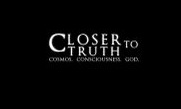 Religious values significantly influence whether or not people think nanotechnology is morally acceptable and how useful they think it is for society, according to survey results published in the journal Nature Nanotechnology. More specifically, a country's general opinion on the morality of nanotechnology correlates directly with the aggregate level of religious views in that country. (Click on image for larger view.)
Religious values significantly influence whether or not people think nanotechnology is morally acceptable and how useful they think it is for society, according to survey results published in the journal Nature Nanotechnology. More specifically, a country's general opinion on the morality of nanotechnology correlates directly with the aggregate level of religious views in that country. (Click on image for larger view.)
"The level of 'religiosity' in a particular country is one of the strongest predictors of whether or not people see nanotechnology as morally acceptable," says Dietram Scheufele, a University of Wisconsin-Madison professor of life sciences communication and lead author of the study. In the United States and European countries in which religion plays a large role in everyday life (Italy, Austria, Ireland), the use of nanotechnology in synthetic biology is generally perceived as immoral, while in more secular countries like Germany and France, people are much less likely to feel the same way.
Back in February, Scheufele and his colleague Elizabeth Corley of Arizona State University released results that showed only 29.5 percent of the 1,015 American adults sampled in their survey said they think the applications of nanotechnology are morally acceptable. This rejection, Scheufele said, seems to comes from the country's strong religious history rather than a lack of knowledge regarding the technology; many with strong religious convictions were well-informed on the subject, he found, but still considered nanotechnology, along with biotechnology and stem cell research, as a way for researchers to "play God."
Scheufele says there "is absolutely no change in what people know about nanotechnology between 2004 and 2007"—possibly in part because people who already hold strong views regarding the technology are not necessarily seeking factual information about it. Overall, he says, the findings show that religiosity serves as a tool for interpreting new technologies—and when people filter their views through religion, it often leads toward broader negative public attitudes toward science. "What we captured is nanospecific, but it is also representative of a larger attitude toward science and technology,"he says. "It raises a big question: What's really going on in our public discourse where science and religion often clash?"
The study, Scheufele writes on his blog, "highlights the importance of values, beliefs, and confirms findings from a number of recent studies (Brossard, Scheufele, Kim, & Lewenstein, forthcoming; Ho, Brossard, & Scheufele, 2008; Kahan, 2008; Nisbet, 2005) that all examine how values shape the interpretation of scientific information. This research shows that the exact same information can translate into very different attitudinal conclusions for highly religious respondents than for nonreligious ones. In other words, we may be wasting valuable time and resources by focusing our efforts on putting more and more information in front of an unaware public, without first developing a better understanding of how different groups will filter or reinterpret this information when it reaches them, given their personal value systems and beliefs." —Heather Wax
Monday, December 8, 2008
Religion Affects Reaction to Nanotech
Posted by Heather Wax at 8:03 AM
Labels: Technology
Subscribe to:
Post Comments (Atom)



0 comments:
Post a Comment